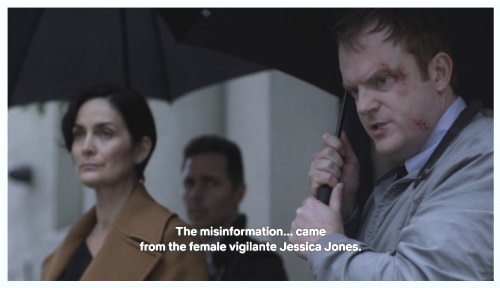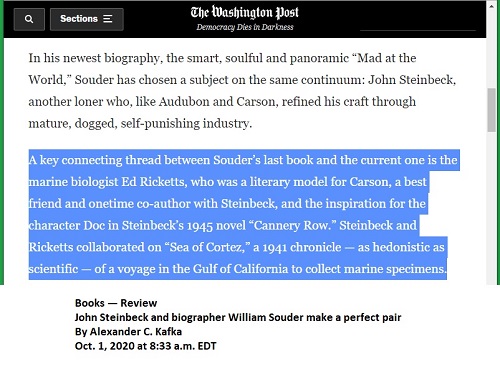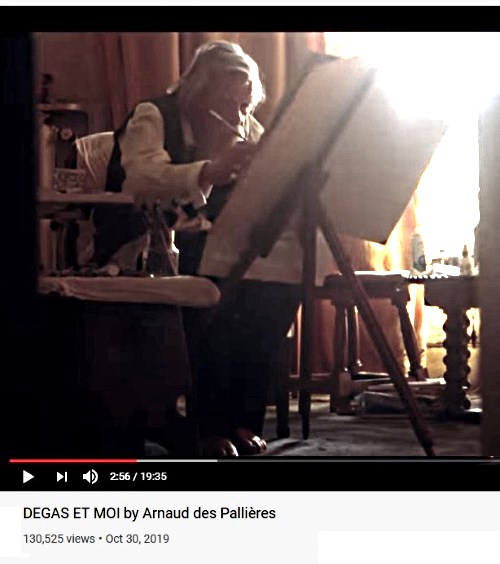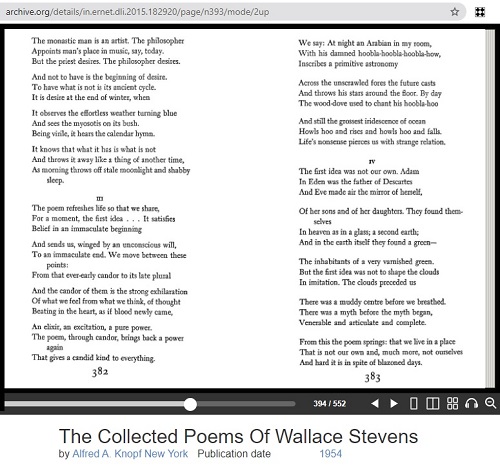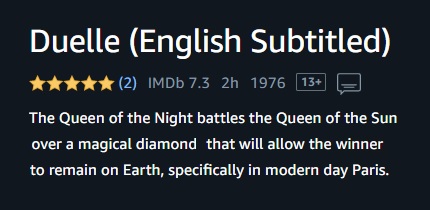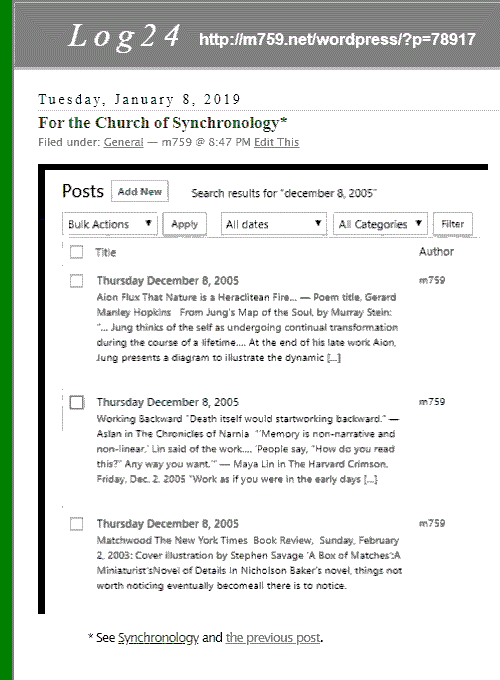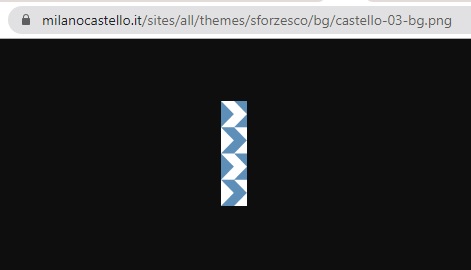Thursday, October 22, 2020
Slant
Wednesday, October 21, 2020
Obit

Randi reportedly died on Tuesday, October 20.
“Italic with Derision”
“These things used to be on the back of cornflakes boxes,”
Mr. Randi, his voice italic with derision, once told the
television interviewer Larry King. “But apparently some
scientists either don’t eat cornflakes, or they don’t read
the back of the box.” — Margalit Fox
See as well …
Riddle for a Code Girl*
Space People Lightbulb Puzzle
by presentationgo.com
“How many space people does it take
to screw in a lightbulb?”
* I.e. , the code girl of the previous post.
Arrangement in Gray and Black
See also The Spelman Trick.
The image above, from an Oct. 15 Harvard Crimson article, is not credited.
But see the Crimson’s “Code Girl” page and the website of Margot Shang.
Meditation in Red and Gray
See also Red and Gray in this journal.
The Chemicals
From a page linked to yesterday in The Newton Methods —
A related fiction —
|
From one of the best books of the 20th century:
by Richard Brautigan “The Chemicals that resided in the jar were a combination of hundreds of things from all over the world. Some of The Chemicals were ancient and very difficult to obtain. There were a few drops of something from an Egyptian pyramid dating from the year 3000 B.C. There were distillates from the jungles of South America and drops of things from plants that grew near the snowline in the Himalayas. Ancient China, Rome and Greece had contributed things, too, that had found their way into the jar. Witchcraft and modern science, the latest of discoveries, had also contributed to the contents of the jar. There was even something that was reputed to have come all the way from Atlantis…. … they did not know that the monster was an illusion created by a mutated light in The Chemicals. a light that had the power to work its will upon mind and matter and change the very nature of reality to fit its mischievous mind.” |
Tuesday, October 20, 2020
The Leibniz Methods
Click medal for some background. The medal may be regarded
as illustrating the 16-point Galois space.
The Browning Methods
The Ballad of Goo Ballou —
the Sequel to . . .
“Let me count the ways” is an appropriate request
for students of the discrete , as opposed to the
continuous , which instead requires measurement .
Related academic material —
Raymond Cattell on crystallized vs. fluid intelligence.
For a more literary approach, see Crystal and Dragon
and For Trevanian.
This post was inspired in part by
the American Sequel Society and . . .

Monday, October 19, 2020
“Let Me Count the Ways” — Jeffrey Toobin?
A Moritat for Macalester
The previous post, "Frame Analysis," was about a death
related to Macalester College.
Wikipedia on the man for whom the college was named —
"In the 1870s, Rev. Dr. Edward Duffield Neill turned to
Macalester for sponsorship for the failing institution
in Minnesota known as Jesus College. "
Logos —
Frame Analysis
For the late John Schue —
Another event on Schue's reported date of death —
Related philosophical remarks —
Also on June 12, 2007 —
“Graffiti in the Library of Babel” Continues.
Click on the Wiktionary image for the Babel story.
Click on the Springer.com link for related posts.
Sunday, October 18, 2020
The Limits of Language
Wittgenstein, Philosophical Investigations 118-119 —
| 118. | Where does our investigation get its importance from, since it seems only to destroy everything interesting, that is, all that is great and important? (As it were all the buildings, leaving behind only bits of stone and rubble.) What we are destroying is nothing but houses of cards and we are clearing up the ground of language on which they stand. |
| 119. | The results of philosophy are the uncovering of one or another piece of plain nonsense and of bumps that the understanding has got by running its head up against the limits of language. These bumps make us see the value of the discovery. |
Unfolded
See “Unfolded.jpg” in this journal. From that search —
Compare and contrast these figures with images by Wittgenstein in . . .
Related material from last night’s post Modernist Cuts —

Schlick also appears in recent posts tagged Moriarty Variations.
Saturday, October 17, 2020
Modernist Cuts

"The bond with reality is cut."
— Hans Freudenthal, 1962

Related screenshot of a book review
from the November AMS Notices —

Now Lens…
The above phrase “neurolinguistic hacker” does not do justice to
Neal Stephenson’s remarks on “Ba’al Shem.”
This post was suggested by an Oct. 12 Wired book review.
Thursday, October 15, 2020
What Lies Beneath
From the previous post —
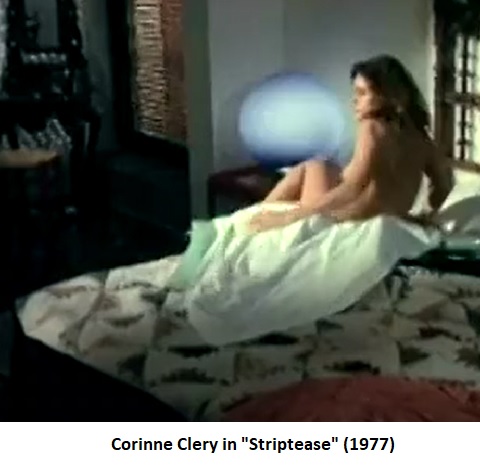
Lily Collins in a more recent mattress meditation —

See as well Plaid in this journal.
The Quarantine Midrash
Illustration for a New York Times July 15 “Tech Fix” piece:
“You’re Doomscrolling Again.“

One possible antidote:

Related fiction: “Quarantine Story.“
“Show me all the blueprints.” — Attributed to Howard Hughes
Sundown Ending
Those posts mark the end of Yom Kippur 2006
and the death of the father of James R. Swartz,
Harvard ’64, for whom the central building of
Harvard Divinity School was renamed in 2019.
See as well last night’s post, “With Shields Emblazoned,”
on the death of a notable Divinity School leader.
Wednesday, October 14, 2020
Histoire d’O : “I Dreamed a Dream”
Tuesday, October 13, 2020
Monday, October 12, 2020
Sunday, October 11, 2020
The Weisheit Weekend
Saniga on Einstein
See “Einstein on Acid” by Stephen Battersby
(New Scientist , Vol. 180, issue 2426 — 20 Dec. 2003, 40-43).
That 2003 article is about some speculations of Metod Saniga.
“Saniga is not a professional mystic or
a peddler of drugs, he is an astrophysicist
at the Slovak Academy of Sciences in Bratislava.
It seems unlikely that studying stars led him to
such a way-out view of space and time. Has he
undergone a drug-induced epiphany, or a period
of mental instability? ‘No, no, no,’ Saniga says,
‘I am a perfectly sane person.'”
Some more recent and much less speculative remarks by Saniga
are related to the Klein correspondence —
arXiv.org > math > arXiv:1409.5691:
Mathematics > Combinatorics
[Submitted on 17 Sep 2014]
The Complement of Binary Klein Quadric
as a Combinatorial Grassmannian
By Metod Saniga
“Given a hyperbolic quadric of PG(5,2), there are 28 points
off this quadric and 56 lines skew to it. It is shown that the
(286,563)-configuration formed by these points and lines
is isomorphic to the combinatorial Grassmannian of type
G2(8). It is also pointed out that a set of seven points of
G2(8) whose labels share a mark corresponds to a
Conwell heptad of PG(5,2). Gradual removal of Conwell
heptads from the (286,563)-configuration yields a nested
sequence of binomial configurations identical with part of
that found to be associated with Cayley-Dickson algebras
(arXiv:1405.6888).”
Related entertainment —
See Log24 on the date, 17 Sept. 2014, of Saniga’s Klein-quadric article:
Thursday, October 8, 2020
Einstein on Poetry
“Pure mathematics is, in its way, the poetry of logical ideas.
One seeks the most general ideas of operation which will
bring together in simple, logical and unified form the largest
possible circle of formal relationships.”
— Albert Einstein, May 1, 1935, obituary for Emmy Noether
Wednesday, October 7, 2020
Between Pyramid and Pentagon

The 35 small squares between the pyramid and the pentagon
in the above search result illustrate the role of finite geometry
in the Miracle Octad Generator of R. T. Curtis.
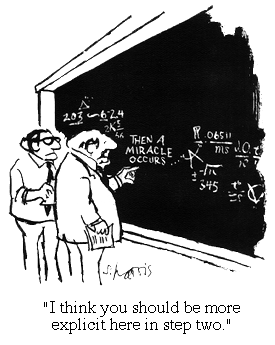
Tuesday, October 6, 2020
Unisons
A web search for “Wallace Stevens” + Virtuoso yields . . .
A thousand crystals’ chiming voices,
Like the shiddow-shaddow of lights revolving
To momentary ones, are blended,
In hymns, through iridescent changes,
Of the apprehending of the hero.
These hymns are like a stubborn brightness
Approaching in the dark approaches
Of time and place, becoming certain,
The organic centre of responses,
Naked of hindrance, a thousand crystals.
To meditate the highest man, not
The highest supposed in him and over,
Creates, in the blissfuller perceptions,
What unisons create in music.
Only Connect : Bulk Apperception* Continues.
The above Vanity Fair article was republished on the Web by VF
on September 3, 2013. See also this journal on that date.
Related religious remarks —
* “Bulk apperception” is a phrase from Westworld. See Log24 notes.
Spreads via the Knight Cycle
Sunday, October 4, 2020
The Language of Flowers
Saturday, October 3, 2020
Friday, October 2, 2020
The Dead Poet of Kinsale
” Another leading Irish poet, Paul Muldoon,
compared Mr. Mahon to a renowned American writer.
‘A technician to rival Richard Wilbur, by whom he was
deeply influenced both as a poet and translator. . . .’ “
A search in this journal for Wilbur yields . . .
Thursday, October 1, 2020
Legend of the Deep: The Sea of Cortez according to Kafka
Annals of Academia
New York magazine's "The Cut" —
BAD SCIENCE
JULY 14, 2016
Why It Took Social Science Years to Correct a Simple Error
About ‘Psychoticism’
By Jesse Singal
"What should we make of all of this? Partly, of course, this is
a story of conflicting personalities, of competitiveness between
researchers, of academics acting — let’s be frank — like dicks."
Or, worse, like New York Times reporter Benedict Carey —
|
A Theory About Conspiracy Theories
In a new study, psychologists tried to get a handle on the personality types that might be prone to outlandish beliefs.
By Benedict Carey, New York Times science reporter, . . . . The personality features that were solidly linked to conspiracy beliefs included some usual suspects: entitlement, self-centered impulsivity, cold-heartedness (the confident injustice collector), elevated levels of depressive moods and anxiousness (the moody figure, confined by age or circumstance). Another one emerged from the questionnaire that aimed to assess personality disorders — a pattern of thinking called “psychoticism.” Psychoticism is a core feature of so-called schizo-typal personality disorder, characterized in part by “odd beliefs and magical thinking” and “paranoid ideation.” In the language of psychiatry, it is a milder form of full-blown psychosis, the recurrent delusional state that characterizes schizophrenia. It’s a pattern of magical thinking that goes well beyond garden variety superstition and usually comes across socially as disjointed, uncanny or “off.”
In time, perhaps some scientist or therapist will try to slap a diagnosis on believers in Big Lie conspiracies that seem wildly out of line with reality. For now, Dr. Pennycook said, it is enough to know that, when distracted, people are far more likely to forward headlines and stories without vetting their sources much, if at all. |
Some elementary fact-checking reveals that historical definitions
of "psychoticism" vary greatly. Carey forwards this bullshit without
vetting his sources much, if at all.
The Stevens Motive
Hillman on Perception
James Hillman
EGALITARIAN TYPOLOGIES
VERSUS THE PERCEPTION OF THE UNIQUE
“The kind of movement Olson urges is an inward deepening of the image,
an in-sighting of the superimposed levels of significance within it.
This is the very mode that Jung suggested for grasping dreams —
not as a sequence in time, but as revolving around a nodal complex.”
See also posts tagged The Well.
Well, which is it, Hillman? Superimposing or revolving?
Wednesday, September 30, 2020
Tuesday, September 29, 2020
“Hear Me Roar” — The Late Helen Reddy

See also Vox Lux in this journal.
Monday, September 28, 2020
Acceptance
Also on May 2, 2020 — A paper on Cubism as Religion is accepted:
Some may question the desirability of acceptance by MDPI.
Acceptance at the Pearly Gates is another matter.
Sunday, September 27, 2020
Hex Witch
The new Netflix film “Enola Holmes” is from a book by Nancy Springer.
Also by Springer:
See that title in this journal.
Mosaic
Remarks on Gordon Baker’s Death Day*
* Baker was a writer on philosophy.
See a memorial by the Harvard Class of 1960.
Gleaming the Cube
Saturday, September 26, 2020
Browsing History
Beach Reading for Springtime in Oz
https://slate.com/technology/2020/09/
qanon-identity-revealed-explained.html
The ghost of Peter Benchley?
Friday, September 25, 2020
The Spelman Trick

The “card tricks” link above, now expired, is to …
http://www.spelman.edu/~colm/cards.html .
That webpage is now on the Internet Archive.
Thursday, September 24, 2020
The Seventh Function
Ludwig Wittgenstein, P.I. . . .
This post was suggested by a Sept. 24, 2020, article at CrimeReads.com
by Philip K. Zimmerman —
“The Philosopher and the Detectives:
Ludwig Wittgenstein’s Enduring Passion
for Hardboiled Fiction.”
Wednesday, September 23, 2020
Recently Acquired Kindle Books

Related Log24 remarks:
Yoda Quilts and posts now tagged Central Myth.
Related remarks elsewhere:
“In The Uncanny Nicholas Royle defined Freud’s Unheimlichkeit
and the experience of an ‘unreal reality’ as ‘another thinking of
beginning’. But if we are to take him at his word, ‘the beginning
is already haunted’ and we may wish to interpret his debut novel
Quilt as spectrally haunted by the critic’s earlier theory. The essay,
which is structured telephonically, since it refers both to Royle’s
view of literature as telepathy (i.e. another form of ‘tele-‘) and the
beginning of the novel, reads Quilt from its ‘Afterward’, to unveil
two main ghosts haunting Royle’s novel: that of Jacques Derrida
and that of James Joyce.”
—Arleen Ionescu, abstract of a 2013 essay on Royle’s Quilt .
Geometry of Even Subsets
Various posts here on the geometry underlying the Mathieu group M24
are now tagged with the phrase “Geometry of Even Subsets.”
For example, a post with this diagram . . .

Tuesday, September 22, 2020
Vanity Fair Cover Girl
Autumn Equinox at the Temple of Art
Detail of illustration by Frederick Alfred Rhead of Vanity Fair,
page 96 in the John Bunyan classic Pilgrim’s Progress
(New York, The Century Co., 1912)
Monday, September 21, 2020
Zelig-Like?
“On their way to obscurity, the Simulmatics people
played minor parts in major events, appearing Zelig-like
at crucial moments of 1960s history.”
— James Gleick reviewing a new book by Jill Lepore


Sunday, September 20, 2020
Epistemological Metaphor
Saturday, September 19, 2020
The Summerfield Prize
Cube School
The new domain http://cube.school
points to posts tagged Cube School here.
Friday, September 18, 2020
Holiday Horns
Readings for Rosh Hashanah from this journal on April 5, 2005 —
Compare the following two passages from Holy Scripture:
“…behold behind him
a ram caught in a thicket by his horns”
“A goat butts against a hedge
And gets its horns entangled.”
Adoration of the Cube
“WHEN I IMAGINE THE CUBE, I see a structure in motion.
I see the framework of its edges, its corners, and its flexible joints,
and the continuous transformations in front of me (before you start
to worry, I assure you that I can freeze it anytime I like). I don’t see
a static object but a system of dynamic relations. In fact, this is only
half of that system. The other half is the person who handles it.
Just like everything else in our world, a system is defined by
its place within a network of relations—to humans, first of all.”
— Rubik, Erno. Cubed (p. 165). Flatiron Books. Kindle Ed., 2020.
Compare and contrast — Adoration of the Blessed Sacrament.
Thursday, September 17, 2020
Structure and Mutability . . .
Continues in The New York Times :
"One day — 'I don’t know exactly why,' he writes — he tried to
put together eight cubes so that they could stick together but
also move around, exchanging places. He made the cubes out
of wood, then drilled a hole in the corners of the cubes to link
them together. The object quickly fell apart.
Many iterations later, Rubik figured out the unique design
that allowed him to build something paradoxical:
a solid, static object that is also fluid…." — Alexandra Alter
Another such object: the eightfold cube .
At the Intersection…
Ideas and Vision: Wittgenstein via Fodor
A remark on "ideas and vision" in the previous post suggests . . .
A search for Fodor in this journal yields his parody of Wittgenstein . . .
-
A man might have this picture of what seeing is:
there is the seer and there is the thing seen .
The one sees the other. A typical philosophical theory. - We wish to ask: what are we supposed to do with this picture?
-
A man might say: ‘I can’t see a thing’ and ‘I can’t see a thing
but the fog.’ Both might be true. - ‘I can’t see a thing in this fog.’ Which thing?
Nexus
“This article is a nexus of ideas and vision….”
— Jack Plotkin at Medium.com yesterday
As are many other things. See nexus in this journal
and . . .

“Show me all the blueprints.”
— Howard Hughes, according to Hollywood
Wednesday, September 16, 2020
Critical Invisibility
Synchronology check —
This journal on the above dates —
8 January 2019 (“For the Church of Synchronology“)
and 24 April 2019 (“Critical Visibility“).
Related mathematics: Klein Correspondence posts.
Related entertainment: “The Bulk Beings.”
The above Physical Review remarks were found in a search
for a purely mathematical concept —
Tuesday, September 15, 2020
The Caputo Deconstruction
Monday, September 14, 2020
Classics Illustrated

“You’re reading me,” she murmurs.
“Particularly and surprisingly well-preserved;
tight, bright, clean and especially sharp-cornered.”
Update of 7 PM ET Sept. 14, 2020 —
A sequel to Creamy and Sweaty —

“Stop loading this page.” . . . “Too late.”
Space People Puzzle
Shades (Of London Bondage continues)
“Loitering in Lara’s dressing room, she tries on
the faux-bondage harness she picked up in London….”

See as well . . .
Socrates in the Marketplace
“The 2×2 matrix is commonly used in business strategy
as a representational tool to show conflicting concepts and
for decision making. This four-quadrant matrix diagram
is perfect to be used for business or marketing matrices
like BCG, SWOT, Ansoff, risk assessment…
Additionally, it will also be suitable to illustrate 4 ideas or
concepts.” [Link on “illustrate” added.]
See also a Log24 search for “Resplendent.”
Sunday, September 13, 2020
The Night Clerk in Duelle (1976)
“As for amateur detective Lucie, she meets Viva and
begins to realize that both Viva and her client, Leni,
are after the same jewel. Her brother reluctantly reveals
their true natures: Viva is the daughter of the Sun, and
Leni the daughter of the Moon. They can stay on Earth
for only 40 days between the last full moon of winter
and the first full moon of spring. The magic jewel can
allow them to stay.”


Braving the Elements
The title is that of a book of poems by James Merrill
that includes “The Emerald.”
“As above, so below.” — The Emerald Tablet
“The Emerald Tablet … is a compact and cryptic piece of
the Hermetica reputed to contain the secret of the prima materia
and its transmutation. It was highly regarded by European alchemists
as the foundation of their art and its Hermetic tradition.” — Wikipedia

Animated version of Book I, Proposition 47, Euclid’s Elements —

|
Saturday, September 12, 2020
Knots Landing
On a mathematician, a knot theorist, who reportedly died
on Sunday, September 6, 2020 —
Another death on that same date — that of an actor from
“Knots Landing: Back to the Cul-de-Sac” . . .

A related quote, courtesy of University Diaries —
Friday, September 11, 2020
Kauffman on Algebra
Kauffman‘s fixation on the work of Spencer-Brown is perhaps in part
due to Kauffman’s familiarity with Boolean algebra and his ignorance of
Galois geometry. See other posts now tagged Boole vs. Galois.
See also “A Four-Color Epic” (April 16, 2020).
In Memoriam
|
From the Vanderbilt University obituary of Vaughan F. R. Jones —
"During the mid-1980s, while Jones was working on a problem in von Neumann algebra theory, which is related to the foundations of quantum mechanics, he discovered an unexpected link between that theory and knot theory, a mathematical field dating back to the 19th century. Specifically, he found a new mathematical expression—now known as the Jones polynomial—for distinguishing between different types of knots as well as links in three-dimensional space. Jones’ discovery had been missed by topologists during the previous 60 years, and his finding contributed to his selection as a Fields Medalist.
'Now there is an area of mathematics called said Dietmar Bisch, professor of mathematics." [Link added.] |
Related to Jones's work —
"Topological Quantum Information Theory" at
the website of Louis H. Kauffman —
http://homepages.math.uic.edu/~kauffman/Quanta.pdf.
Kauffman —
Thursday, September 10, 2020
Of London Bondage
"After years in hiding, latex fashion re-emerged in the late 1950s,
thanks to the British designer John Sutcliffe, who created the world’s
first catsuit – the prototype rubber-fetish garment. …
The 1960s British spy series The Avengers was monumental
in bringing rubberwear to the masses. The show’s feminist heroine,
Emma Peel (played by Diana Rigg), was styled in a latex, Sutcliffe-
inspired catsuit. With Peel as a media archetype, latex’s second-skin
look wasn’t just sexy, it was superhuman.
Sutcliffe capitalised on the obsession with his products, and founded
AtomAge Magazine in 1972. The periodical, filled with artful and erotic
bondage imagery, gained a huge following among fetishists, and made
quite the splash on London’s progressive fashion scene. "
— By Cassidy George, bbc.com, 8th January 2020
See also an image from a Log24 post on that date a year earlier—
Ship Shape
Wednesday, September 9, 2020
Portrait with Holocron
Artspeak Eulogy
“… several writers called Mr. Gorchov’s paintings ‘primitive,’
but he preferred ‘rudimentary.’ They took painting back to basics,
to a primal state and a set of motifs that changed only a little,
flirting with repetition but rarely succumbing to it.”
— Roberta Smith in The New York Times this afternoon.
Gorchov reportedly “died on Aug. 18 at his home in Red Hook, Brooklyn.”
See as well some art remarks on Aug. 18 in this journal —
More generally, see other posts tagged Kampf.
Update of 1:16 PM ET Sept. 9 —
Arrow Theme
The abstract arrows below in an image from yesterday’s Design post . . .
. . . are a background feature of the Castello Sforzesco website generally,
and not specifically of Corraini’s 2016 graphic design presentation.
The arrows apparently come from repetitions of this motif —
Similar arrow motifs appear at the castle’s main page —
Tuesday, September 8, 2020
“The Eight” according to Coleridge
Metaphysical ruminations of Coleridge that might be applied to
the eightfold cube —

See also "Sprechen Sie Neutsch?".
Update of December 29, 2022 —

Design

Illustration by Pietro Corraini
Corraini design lecture on June 29, 2016 —
This journal on the same day —
Monday, September 7, 2020
A Discovery of Space
Fiction set in Duke Humfrey's Reading Room at
the Bodleian Library, University of Oxford:
|
"I walked quickly through the original, fifteenth-century part of the library, past the rows of Elizabethan reading desks with their three ascending bookshelves and scarred writing surfaces. Between them, Gothic windows directed the reader’s attention up to the coffered ceilings, where bright paint and gilding picked out the details of the university’s crest of three crowns and open book and where its motto, 'God is my illumination,' was proclaimed repeatedly from on high."
— Harkness, Deborah. A Discovery of Witches: |
Related non-fiction about an event on Jan. 26, 2019 —
Meanwhile, elsewhere —
A later ad for the Lyche exhibition —
See as well some posts about the Eddington song —
A Discovery of Species
From the subtitles to “A Discovery of Witches,”
Season 1, Episode 2 —
An actor playing a contemporary (2018) fictional Oxford professor —
378
00:35:54,235 –> 00:35:56,593
We’re among hundreds of laboratories
using genetics
379
00:35:56,595 –> 00:35:59,713
to study species origin,
but in our lab
380
00:35:59,715 –> 00:36:02,315
humans aren’t the only species
we’re studying.
An earlier non-fictional Oxford student writes —

Related material: Other posts tagged Structure and Mutability.
Remedial Reading
Sunday, September 6, 2020
Logo Note
This post was suggested by my Feedly tonight —
“Add note” — A constant Feedly suggestion.
OK . . .
— Images from The Hogwash Papers
Logo Detail
“Pray for the Grace of Accuracy.”
The title is from a poem by Robert Lowell.
Saturday, September 5, 2020
Poetry 101: “Do Not Block Intersection”
The title is from a post of July 27.
From earlier posts (Feb. 20, 2009) —
| Emblematizing the Modern
Note that in applications, the vertical axis of T.S. Eliot:
“Men’s curiosity searches past and future |
Midrash for LA —

Ikonologie des Zwischenraums
The title is from a Cornell page in the previous post.

Related material (click to enlarge) —
The above remarks on primitive mentality suggest
a review of Snakes on a Plane.
For Witch Wannabes
Part I — From a TV series released in the UK on Sept. 14, 2018 —
Pages scattered by the wind magically reassemble
at an Oxford witch’s command:
Part II — Images on a book cover from a Log24 search for “Dominus” —
Part III — From Log24 on the “Witches” release date —
In this Cornell page, Gombrich discusses images symbolizing sin.
What sort of sin is symbolized by the above time-reversal scene
in “Discovery of Witches” and by such scenes in the new film “Tenet,”
the reader may decide.
Friday, September 4, 2020
Vox Lux
An illustration from the Vox article —
Another approach to Nolan theory —
Or Matt Helm by way of a Jedi cube.
Force Field of Dreams
(Continued from September 22, 2002.)
“As you read, watch for patterns. Pay special attention to
imagery that is geometric….” — “Pattern in The Defense “


See as well Wednesday’s Smile, and “Expanding the Spielraum“ .
Thursday, September 3, 2020
LA Stories
Recreation of a 1960s LA marquee in “Once Upon a Time in Hollywood” —
But seriously . . .
See also a “Once-Upon-a-Time”-related death.
Frown.
(A sequel to the previous post, “Smile.“)
The above image links to a New York Times opinion piece.
“Michael J. Sandel is a professor of government at Harvard
and the author of the forthcoming The Tyranny of Merit :
What’s Become of the Common Good? , from which this
essay is adapted.” — NY Times .






































